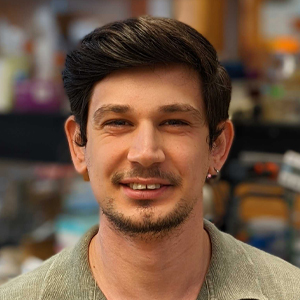Mutant RNA exosome protein linked to neurodevelopmental defects
Neurodevelopmental defects impair activities of the brain, such as cognition and memory. Researchers still have much to learn about the mechanisms behind these conditions, but recent findings helped define the role played by a specific genetic mutation.
A study by Milo Fasken and colleagues, published in the Journal of Biological Chemistry, describes a genetic variant in the RNA exosome component gene, EXOSC4, associated with neurodevelopmental disease phenotypes, such as prenatal growth restriction and global developmental delay. The researchers report that this mutation impairs RNA exosome function.
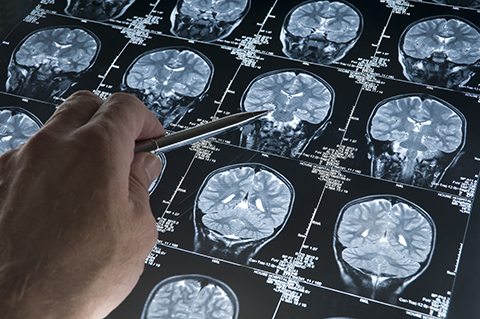
The RNA exosome is a ribonuclease complex that maintains normal cellular activities by processing ribosomal RNA, degrading aberrant RNA, and regulating messenger RNA production and degradation. Thus, any mutations in exosome genes may disrupt cellular homeostasis.
Fasken, an associate scientist in Anita Corbett’s lab in the biology department at Emory University, was first author on the JBC paper.
“Professor Corbett and I have been studying RNA exosome gene variants identified in disease for a number of years now,” he said. “We are characterizing the functional defects in the RNA exosome associated with each EXOSC variant using several models. Our work provides insights into how EXOSC variants impair the RNA exosome complex and sheds light on possible mechanisms of disease.”
The RNA exosome complex comprises 10 subunits that form a ringlike structure and work cooperatively to perform the exosome’s functions. EXOSC4 is one of the structural subunits. The newly identified missense mutation in EXOSC4 causes a single amino acid substitution in the EXOSC4 protein and this EXOSC4 variant can disrupt interactions with other RNA exosome subunits and impair function.
The team found the missense EXOSC4 mutation in two siblings with neurodevelopmental defects. Then, they compared the siblings’ disease characteristics with those linked to several other EXOSC mutations that abolish exosome activity and cause neurodevelopmental defects. They concluded that their phenotypes overlapped, indicating that the mutation in EXOSC4 causes an exosomopathy.
The researchers then used a budding yeast model to explore consequences of the EXOSC4 mutation on cellular function. The ortholog of EXOSC4 is Rrp41 in budding yeast; therefore, they genetically engineered a budding yeast strain to contain the corresponding missense mutation in the RRP41 gene. In addition, the researchers overexpressed the mutant protein using a high copy number plasmid.
“We have found that increasing the level of the yeast Rrp41 variant … in budding yeast restores some RNA exosome function but not to the same extent as the wild-type protein,” Fasken said. “This result suggests that mutation itself also has functional consequences. Also, we have shown that yeast cells expressing the mutant protein variant exhibit translational defects with a reduction of ribosomes.”
These results show that the EXOSC4 variant not only causes functional defects but also impairs interactions with other exosome subunits, therefore suggesting that the EXOSC4 variant could impair exosome complex assembly.
In future studies, the researchers will investigate how various types of mutations in the EXOSC genes affect the RNA exosome complex and translate to neurodevelopmental defects. Information from this study could inform the development of gene therapy applications for exosomopathies.
Enjoy reading ASBMB Today?
Become a member to receive the print edition four times a year and the digital edition monthly.
Learn moreGet the latest from ASBMB Today
Enter your email address, and we’ll send you a weekly email with recent articles, interviews and more.
Latest in Science
Science highlights or most popular articles

Unraveling oncogenesis: What makes cancer tick?
Learn about the ASBMB 2025 symposium on oncogenic hubs: chromatin regulatory and transcriptional complexes in cancer.

Exploring lipid metabolism: A journey through time and innovation
Recent lipid metabolism research has unveiled critical insights into lipid–protein interactions, offering potential therapeutic targets for metabolic and neurodegenerative diseases. Check out the latest in lipid science at the ASBMB annual meeting.
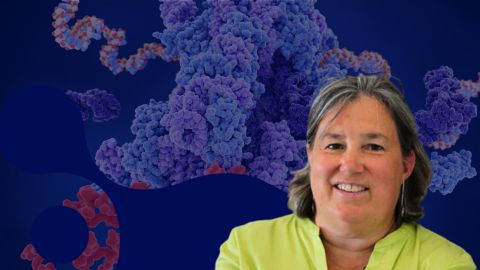
Melissa Moore to speak at ASBMB 2025
Richard Silverman and Melissa Moore are the featured speakers at the ASBMB annual meeting to be held April 12-15 in Chicago.
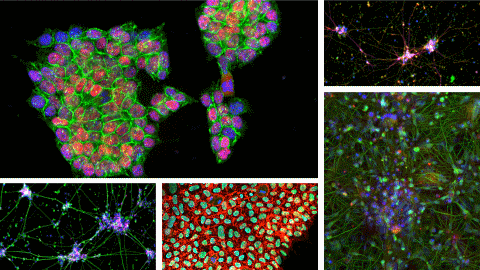
A new kind of stem cell is revolutionizing regenerative medicine
Induced pluripotent stem cells are paving the way for personalized treatments to diabetes, vision loss and more. However, scientists still face hurdles such as strict regulations, scalability, cell longevity and immune rejection.
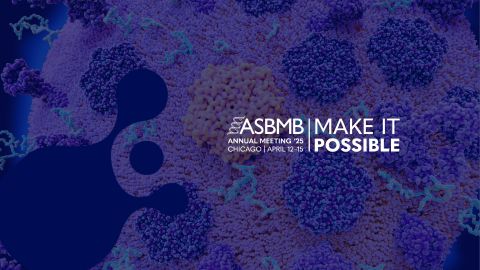
Engineering the future with synthetic biology
Learn about the ASBMB 2025 symposium on synthetic biology, featuring applications to better human and environmental health.
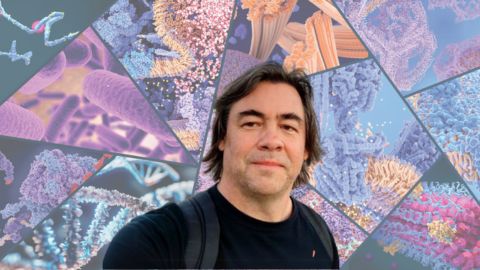
Scientists find bacterial ‘Achilles’ heel’ to combat antibiotic resistance
Alejandro Vila, an ASBMB Breakthroughs speaker, discussed his work on metallo-β-lactamase enzymes and their dependence on zinc.

